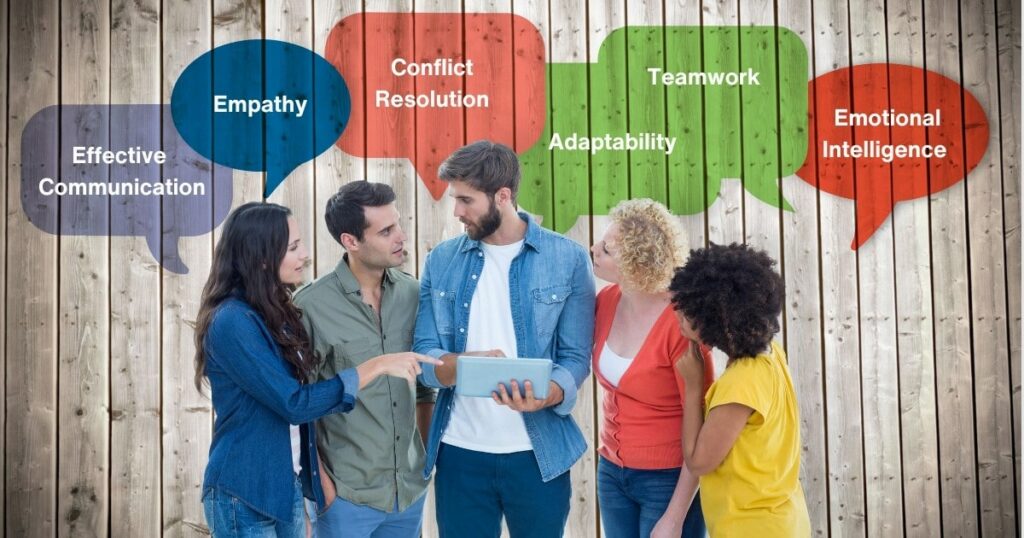
Interpersonal skills are crucial in modern society due to the global interactions between people. Whether at the individual or company level, people’s relationships and social interactions are essential in every part of life. This blog focuses on interpersonal skills, their importance in modern society, and how to achieve them.
Understanding Interpersonal Skills
Interpersonal skills are defined as the skills an individual requires to communicate effectively with other people, what is generally known as ‘people skills’ or ‘soft skills.’ Technical skills vary from work to work, but interpersonal skills apply to everyday life interactions in any form. Enrolling in a communication skills course can greatly enhance these vital skills.
Key Components of Interpersonal Skills
1. Effective Communication
The most important underlying aspect of interpersonal skills is communication. It is essential to balance both speaking and listening. Not only sharing ideas, thoughts, and emotions while also listening to others creates a good atmosphere where others feel respected and valued. Individuals can develop these skills by registering for a communication skills course. Further, non-verbal communication, such as gestures, movements, posture, body language, and eyes, assists in communicating information.
2. Empathy
Empathy is understanding emotions, recognising them, and relating to them. Leaders should put themselves in others’ shoes and see their points of view. In professional and private life, such people can establish profound connections and build trust.
3. Teamwork
Teamwork is essential for achieving success in the organisation. Collaboration among team members is necessary to yield maximum profits as they work on a common goal using all their capabilities. Negotiating roles, managing duties and responsibilities, and sharing the job load between the team members, whether it is big or small, creates a positive environment among the team.
4. Conflict Resolution
Conflicts will arise in a group, whether personal or professional. Managing the disturbances within the group is also an important interpersonal skill. Evaluating the emotions and feelings of that situation and addressing them. Effective conflict resolution will enable teams to work with improved confidence and trust.
5. Emotional Intelligence
The ability to understand and manage oneself and others is termed self-awareness, which falls under Emotional Intelligence (EI). It is easy to handle people with Emotional Intelligence as they can manage their emotions and affairs successfully. This social skill is key to coordinating with people as it helps how others respond to them.
6. Adaptability
Adapting to the situation, attitude, and communication play a significant role in this modern world. An adaptable person knows how to read the room and adjust their communication style to suit different social situations.
Why Interpersonal Skills Matter
Interpersonal skills will always lead to a positive outcome, whether personal or professional. Some examples include the following:
- Enhanced Relationships: A good understanding of others and communicating responsibly with them lead to deeper, more meaningful, and ultimately more productive relationships.
- Career Advancement: In the workplace, people with extraordinary interpersonal skills are usually noticed, often viewed as leaders, and more productive; thus, opportunities for career growth will knock on their doors.
- Conflict Reduction: Good interpersonal skills nurture conflict and misunderstanding reduction, which leads to greater harmony.
- Decrease of Conflicts: Successful interpersonal skills allow for effective information sharing, collaborative involvement, and a sense of belonging among team members.
Conclusion:
Interpersonal skills are essential and relevant in all walks of life; they affect personal relationships, career advancement, and general well-being. This understanding will be in demand as our world becomes more complex and interlinked! When communication, empathy, teamwork, conflict resolution, emotional intelligence, and adaptability are things people can actively develop, they can improve their relationships with each other and further enrich their own experience. Consider taking a communication skills course to develop these essential attributes further personally and professionally.

Leave a Reply